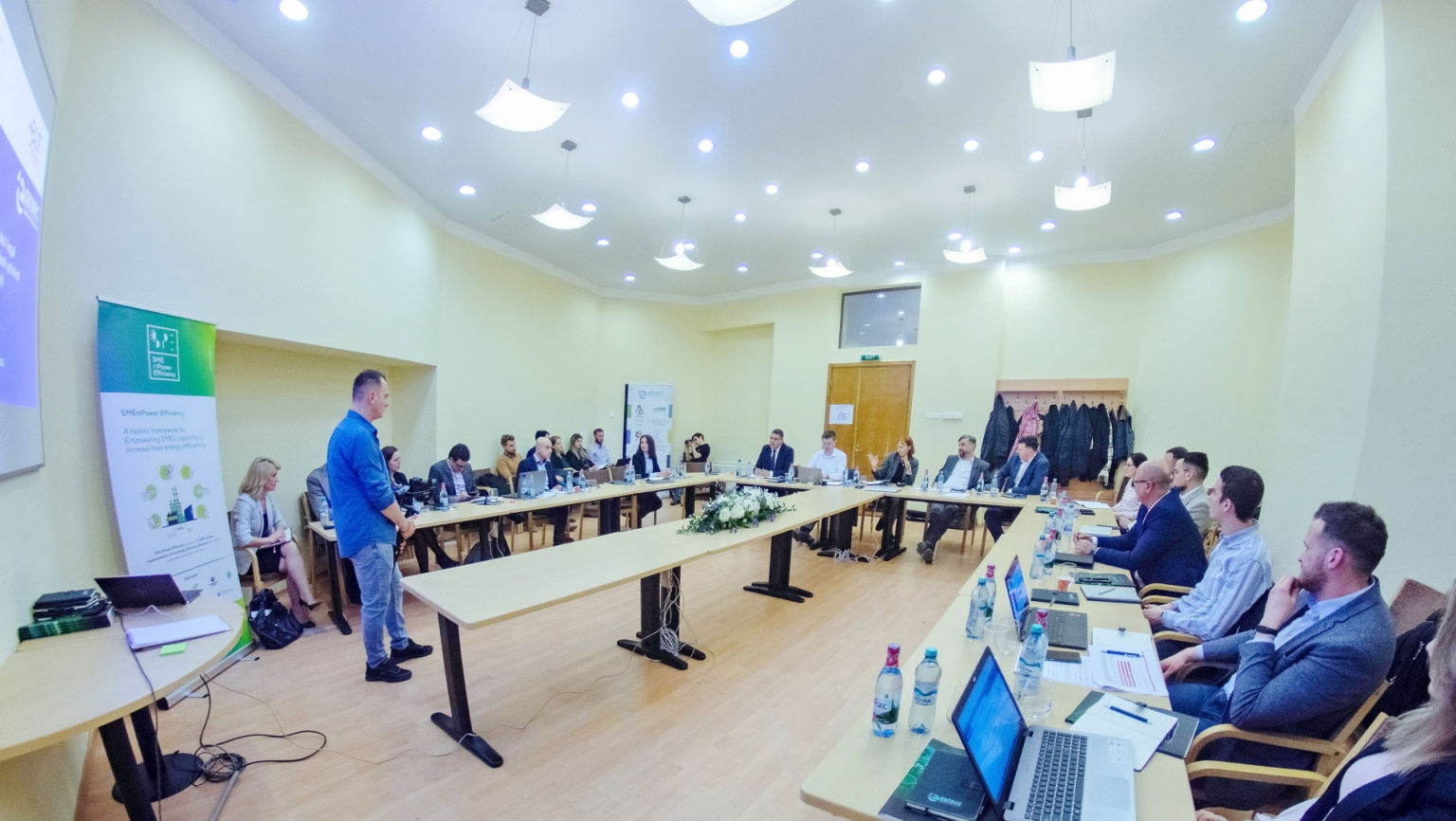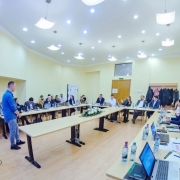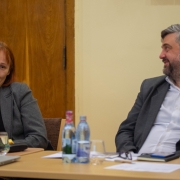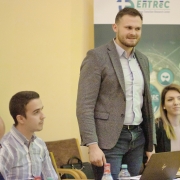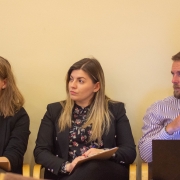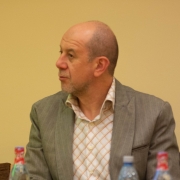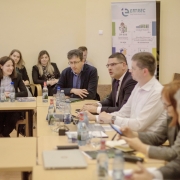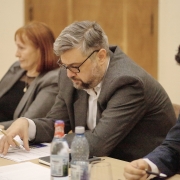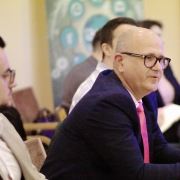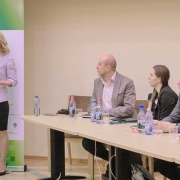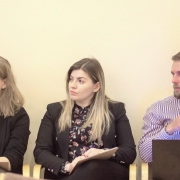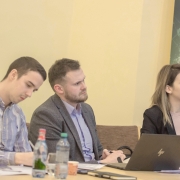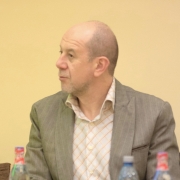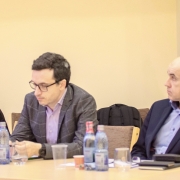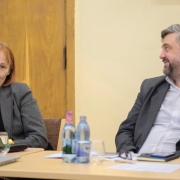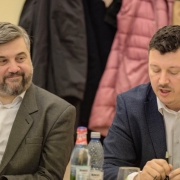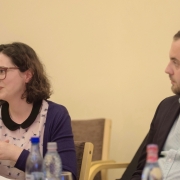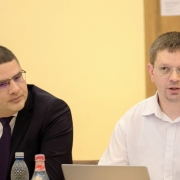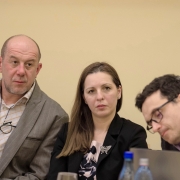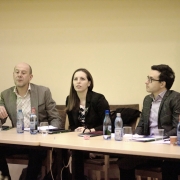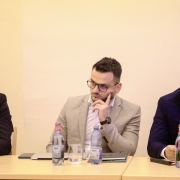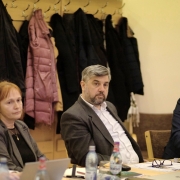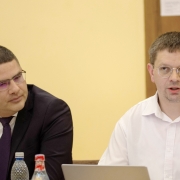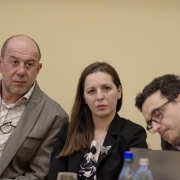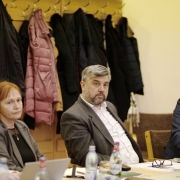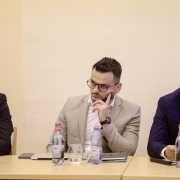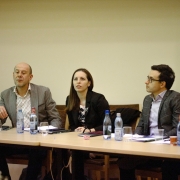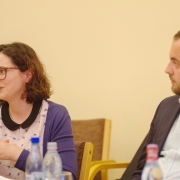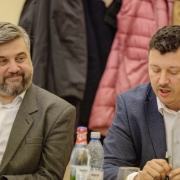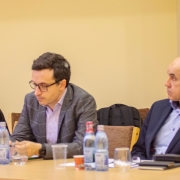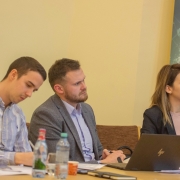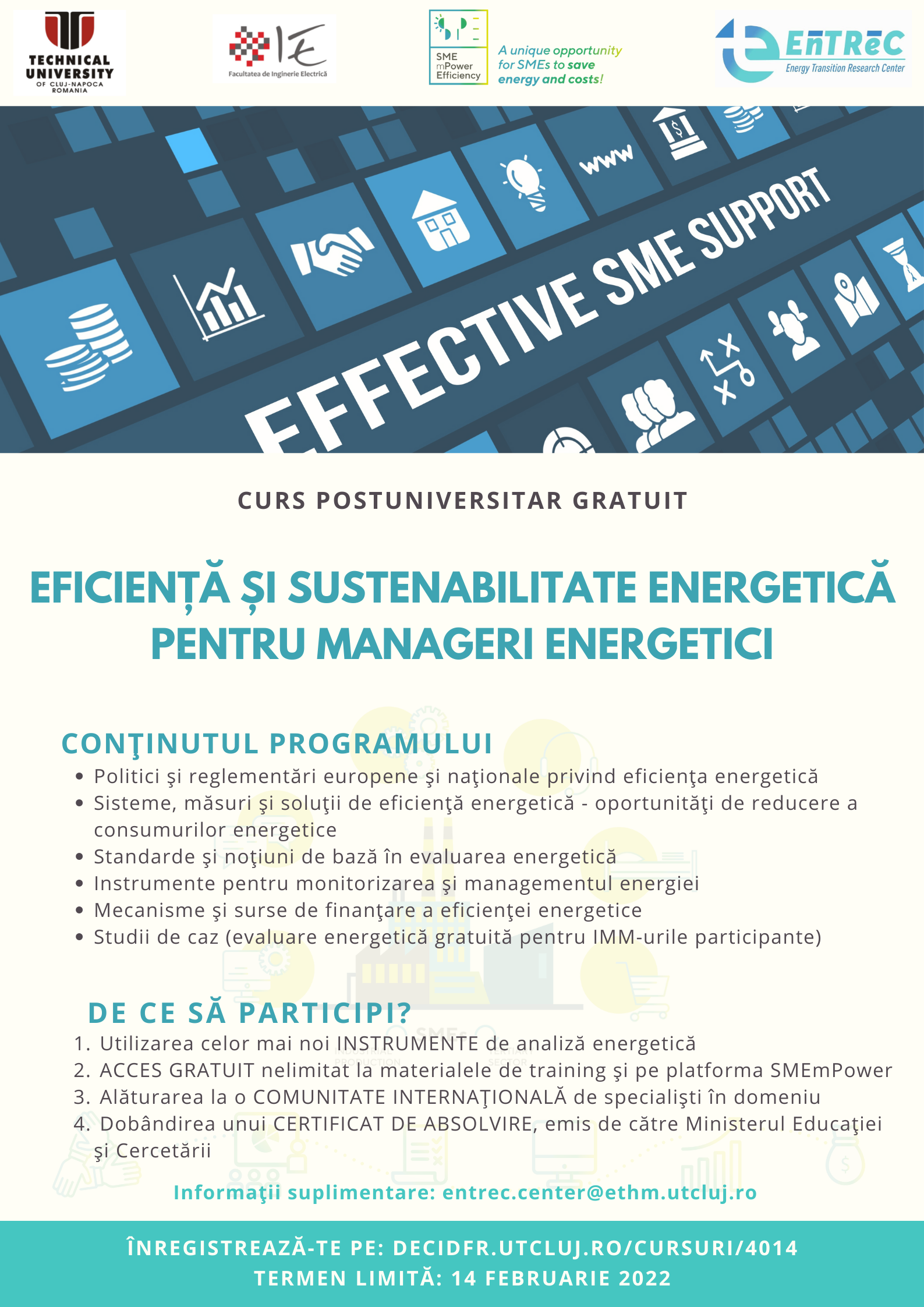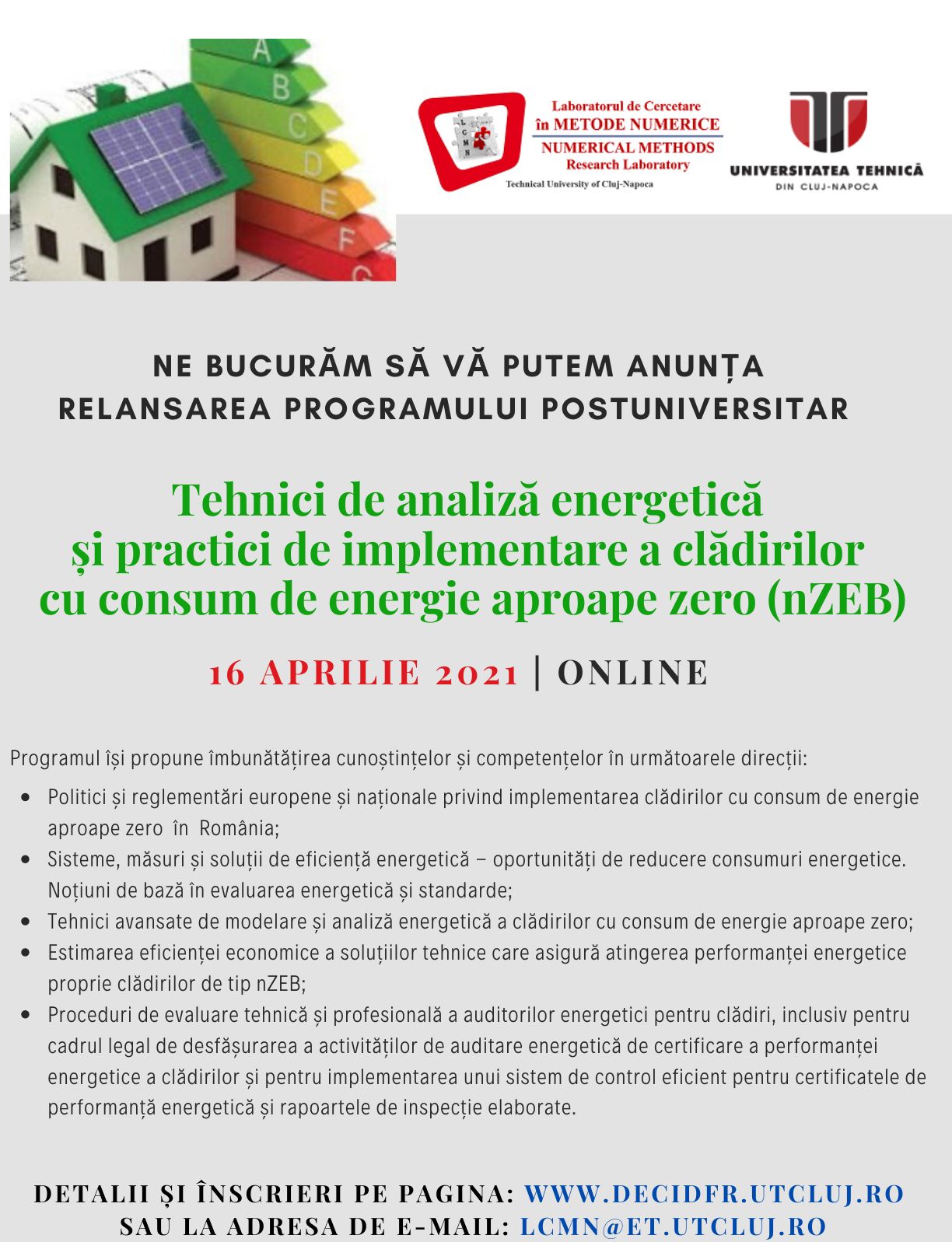Lansare proiect LIFE EnTRAINER – Energy Transition Audits towards Decarbonization
În perioada 16-17 ianuarie 2023, a avut loc, la Salonic (Grecia), lansarea proiectului EnTRAINER, finanțat de către Comisia Europeană prin European Climate, Infrastructure and Environment Executive Agency (CINEA) în cadrul programului LIFE. Valoarea totală a proiectului este de 1.842.112,00 euro și va fi implementat în perioada 01.12.2022 – 30.11.2025.
Consorțiul este coordonat de către Universitatea Aristotel din Salonic (AUTH) și este format din 4 universități și 4 companii cu experiență în cercetare științifică, furnizarea de servicii energetice și implementarea acțiunilor de eficiență energetică, după cum urmează:
- ARISTOTELIO PANEPISTIMIO THESSALONIKIS, Grecia (AUTH)
- UNIVERSITAT POLITECNICA DE VALENCIA, Spania (UPV)
- SERVELECT SRL, România (SVT)
- AGENZIA PER L’ENERGIA ALTO ADIGE – CASACLIMA, Italia (CASACLIMA)
- PANEPISTIMIO DYTIKIS MAKEDONIAS, Grecia (UOWM)
- UNIVERSITATEA TEHNICĂ din CLUJ-NAPOCA, România (UTC)
- BEON GESTIONA SOCIEDAD LIMITADA, Spania (BEON)
- USE EFFICIENCY ASSOCIATION, Italia (USEEFF)
EnTRAINER își propune să introducă o schimbare de paradigmă prin trecerea de la auditurile energetice convenționale la o metodologie nouă, holistică și completă de „Audituri pentru Tranziție Energetică” (ETA), cu scopul obținerii neutralității climatice. Având la bază această nouă abordare, obiectivul principal al proiectului se referă la elaborarea unui plan de acțiune complet pentru decarbonarea integrală a locațiilor auditate, prin evidențierea beneficiilor multiple asociate unui ETA.
EnTRAINER se va concentra pe industriile consumatoare de energie din 4 țări membre ale Uniunii Europene (Grecia, România, Italia și Spania), care pot deveni state model în implementarea auditurilor energetice pentru celelalte state din UE. Abordarea EnTRAINER cuprinde activități de formare gratuite, sub forma a 2 programe postuniversitare acreditate pentru auditori energetici actuali sau viitori experți în energie și 1 curs pentru personalul din companii, inclusiv pentru top management. Alături de cursurile de formare, se vor crea: un portal web complex; 4 instrumente specifice de analiză energetică; o platformă de training și un hub de cunoștințe care vor permite interacțiunea continuă și schimbul de cunoștințe între participanți.
În cadrul proiectul, se vor realiza gratuit 80 de evaluări energetice preliminare pentru companii, în special pentru industriile cu consumuri ridicate de energie. Pe baza unor criterii prestabilite de maturitate energetică, vor fi alese locațiile în care se vor efectua 40 audituri pentru tranziție energetică detaliate. Prin EnTRAINER vor fi instruiți 240 de auditori energetici și se vor iniția minim 40 de audituri indirecte prin interacțiunea cu auditorii energetici a. Mai mult, se vor instrui 240 de experți în energie care ar putea deveni viitorii auditori ai tranziției energetice și 400 de angajați din companii, inclusiv factori decizionali.
Se preconizeză că acțiunile întreprinse în cadrul EnTRAINER vor declanșa investiții de 16 milioane EUR, economii de energie primară de 4,75 GWh și generare de energie din surse regenerabile de 5,16 GWh în total cumulat în perioada de derulare a proiectului. Universitatea Tehnică din Cluj-Napoca, prin membrii Centrului de Cercetare în Tranziție Energetică (EnTReC), va conduce pachetul de lucru 2. Obiectivul principal al acestui pachet de lucru este de a stabili o schimbare de paradigmă în abordarea auditurilor energetice convenționale, care se va concentra pe conceperea unui plan de acțiune pentru decarbonare. În acest sens va fi definită o metodologie holistică de audit pentru tranziție energetică, care va evidenția beneficiile multiple ale implementării unui ETA. De asemenea, va include o metodologie specifică pentru abordarea colectivă a implementării auditurilor pentru tranziție energetică în interiorul companiei. Rezultatul ETA va fi planul de acțiune pentru decarbonarea integrală a companiei și parcusul spre decarbonare pe care compania este recomandat sa îl urmeze pe termen scurt, mediu și lung.
Centrul de Cercetare în Tranziție Energetică (EnTReC) este unul dintre centrele reprezentative de cercetare ale Universității Tehnice din Cluj-Napoca, având ca scop sprijinirea societății actuale în depășirea provocărilor și barierelor existente în domeniul energiei, prin cercetări multidisciplinare. Expertiza EnTReC a fost dobândită prin participarea activă în consorții de cercetare interdisciplinare, finanțate din foduri
naționale și internaționale.
Mai multe detalii despre proiect se pot obține la:
E-mail: entrec.center@ethm.utcluj.ro, Denisa.Stet@ethm.utcluj.ro
Website: https://entrainer-project.eu/



